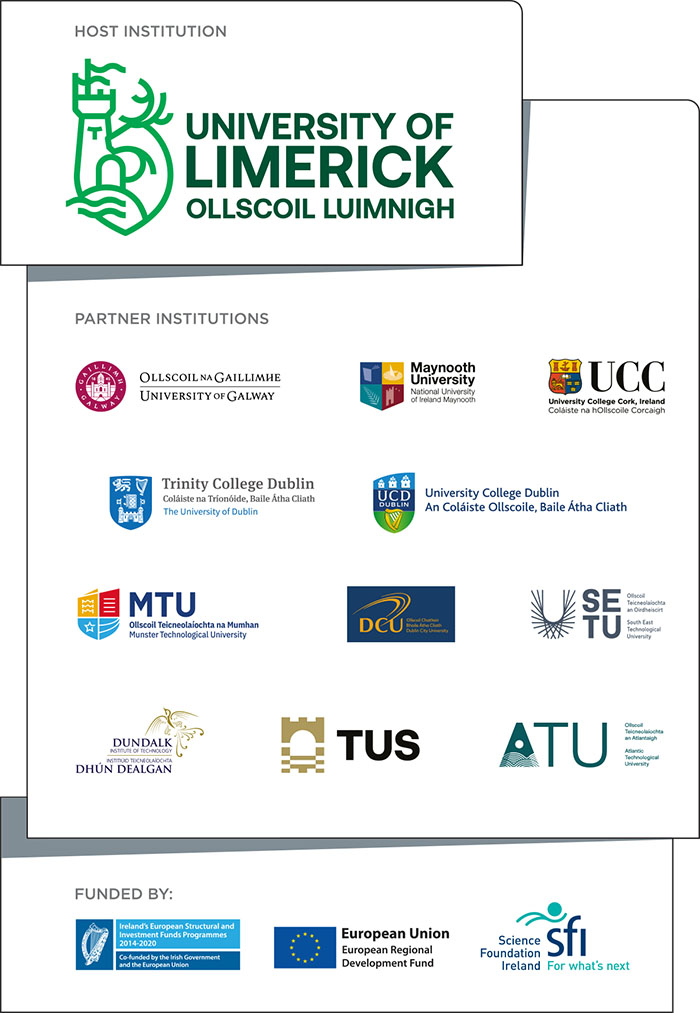Minister announces funding for two Lero-led projects to respond to pressing needs arising from COVID-19
You are here
Two Lero-led projects are among those announced by the Minister for Further and Higher Education, Research, Innovation and Science, Simon Harris, TD, today, as part of a €5.5 million investment under Science Foundation Ireland’s COVID-19 Rapid Response Research and Innovation Programme.
Announcing the awards Minister Harris, said: “Today I am pleased to announce a further investment of €5.5 million in research and innovation related to COVID-19. It is clear this virus is with us for a significant period of time and yet we still have a lot to learn about it”.
“Research, development and innovation will play a significant role in tackling the COVID-19 pandemic. The 41 projects announced today are part of a national drive to find solutions to the challenges we face now, and to help us prepare to live in a changing environment that requires new thinking and innovative approaches. I would like to congratulate all of the researchers receiving funding today and thank them for their efforts in Ireland’s collective response to COVID-19,” he continued.
Among the projects to receive grant funding is one led by Professor Derek O’Keeffe of Lero and NUI Galway aimed at developing technology to detect a specific cough and breath sounds associated with COVID-19.
Most people who go for a COVID-19 test come up negative. This is partly because many people are sent for testing when they have a cough, and that may not be caused by COVID-19. Using cough and breath sounds to identify people more likely to have COVID-19, Professor O’Keeffe and colleagues at NUI Galway, MIT and Harvard aim to reduce unnecessary testing of patients with non-specific symptoms, saving resources and time. The technology will also offer a non-invasive way to monitor the progress of patients with the disease.
“Our innovative #DigitalCough project harnesses state-of-the-art technologies (Internet of Things, Digital Signal Processing, Artificial Intelligence) and global collaboration (MIT, Harvard, NUI Galway) to develop a novel solution to fight COVID-19,” said Lero’s Professor O’Keeffe, Professor of Medical Device Technology at NUI Galway, Consultant Physician University Hospital Galway.
Dr Irina Tal of Lero and Dublin City University, along with colleagues in Dublin City University, Trinity College Dublin, National College of Ireland and Middlesex University London and SFI Centre Adapt, have been awarded funding to investigate how people in Ireland feel about privacy and tracking during the COVID-19 pandemic.
The interdisciplinary project called PRIVATT aims to get a deeper understanding of privacy issues by using machine learning to analyse the sentiment on Irish social media about privacy during COVID-19, and will explore how existing technological solutions, including those that have been implemented in other countries, can better protect our fundamental rights and be accepted by the Irish population.
By studying the efficiency of the technological solutions that other countries have already imposed to track the spread of COVID-19 in light of the Irish public’s attitudes to privacy, the research will rapidly provide specific recommendations to the Government and other key public and private stakeholders on which technological solutions are best suited for the Irish population for tracking during COVID-19 and guarantee a high level of protection of fundamental rights.
“We are looking forward to this new collaboration between four educational institutions and two SFI research centres and the ability to contribute to public policy and awareness in this area,” commented Lero’s Dr Tal, Assistant Professor at DCU.
The COVID-19 Rapid Response Research, Development and Innovation programme was established by SFI, Enterprise Ireland, IDA Ireland, the Health Research Board and Irish Research Council.
The most recent announcement builds on SFI’s previous investment of €8 million across 17 COVID-19 research and innovation projects. All of the projects funded have been internationally peer reviewed at the assessment stage.




